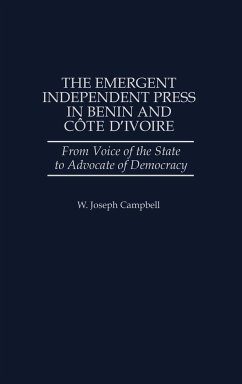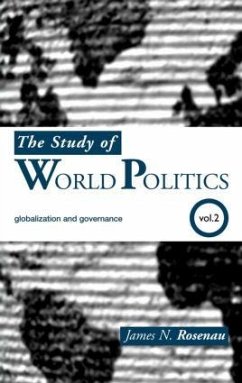
An Emergent European Executive Order
Versandkostenfrei!
Versandfertig in 1-2 Wochen
119,99 €
inkl. MwSt.

PAYBACK Punkte
60 °P sammeln!
This book poses two pertinent questions: First, if a European executive order is emerging, how can we empirically see it? Second, if a European executive order is emerging, how can we explain everyday decision-making processes within it? The goal of this book is two-fold: First, it identifies key institutional components of an emergent European executive order. The nucleus of this order is the European Commission. The Commission, however, is increasingly supplemented by amushrooming parallel administration of EU-level agencies and EU committees. This book provides fresh empirical survey and in...
This book poses two pertinent questions: First, if a European executive order is emerging, how can we empirically see it? Second, if a European executive order is emerging, how can we explain everyday decision-making processes within it? The goal of this book is two-fold: First, it identifies key institutional components of an emergent European executive order. The nucleus of this order is the European Commission. The Commission, however, is increasingly supplemented by a
mushrooming parallel administration of EU-level agencies and EU committees. This book provides fresh empirical survey and interview data on the everyday decision-making behaviour, role perceptions, and identities among European civil servants who participate within these institutions.
Secondly, this book claims and empirically substantiates that an emergent European executive order is a compound executive order balancing a limited set of key decision-making dynamics. One message of this book is that an emergent European executive order consists of a compound set of supranational, departmental, epistemic, and intergovernmental decision-making dynamics. Arguably, a compound European executive order transforms the inherent Westphalian order to the extent that
intergovernmentalism is transcended and supplemented by a multidimensional mix of supranational, departmental and/or epistemic dynamics. This book also theoretically explores conditions under which these decision-making dynamics gain prevalence. It is argued that the decision-making dynamics emerging within an
emergent European executive order are conditioned by the formal organisation of its composite parts and by the patterns of social interaction that emerge among its civil servants. Political processes and political systems can neither be adequately understood nor explained without including the organisational dimension of executive orders.
mushrooming parallel administration of EU-level agencies and EU committees. This book provides fresh empirical survey and interview data on the everyday decision-making behaviour, role perceptions, and identities among European civil servants who participate within these institutions.
Secondly, this book claims and empirically substantiates that an emergent European executive order is a compound executive order balancing a limited set of key decision-making dynamics. One message of this book is that an emergent European executive order consists of a compound set of supranational, departmental, epistemic, and intergovernmental decision-making dynamics. Arguably, a compound European executive order transforms the inherent Westphalian order to the extent that
intergovernmentalism is transcended and supplemented by a multidimensional mix of supranational, departmental and/or epistemic dynamics. This book also theoretically explores conditions under which these decision-making dynamics gain prevalence. It is argued that the decision-making dynamics emerging within an
emergent European executive order are conditioned by the formal organisation of its composite parts and by the patterns of social interaction that emerge among its civil servants. Political processes and political systems can neither be adequately understood nor explained without including the organisational dimension of executive orders.












